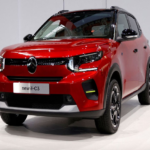Recent News
-
The Unexpected Solution for Making Events More EnjoyableAugust 4, 2025
-
I Slipped and Fell at Walmart: Do I Have A Case?June 4, 2025
Categories
Recent random
- The Unexpected Solution for Making Events More Enjoyable
- Unlocking the Future: Why Smart Keys & Automotive Car Keys Are the New Standard for Locksmiths
- I Slipped and Fell at Walmart: Do I Have A Case?
- Why Choose an Automatic SUV Car? The Benefits Explained
- Keep Your Off-Road Adventure Smooth and Damage-Free




